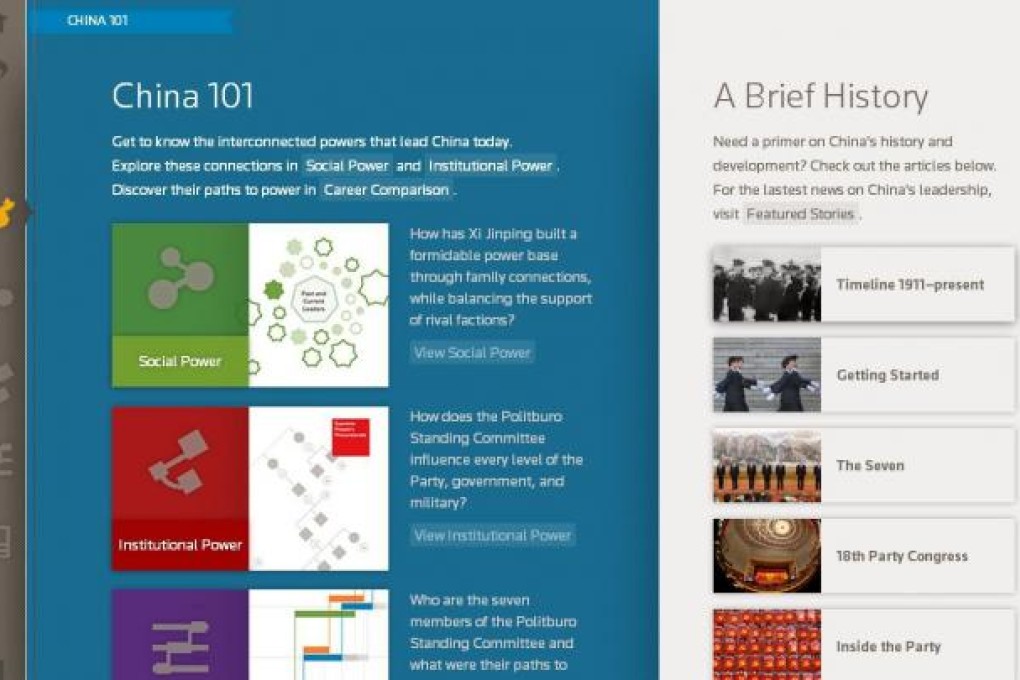Locustland | Reuters' China power map is totally awesome and somewhat informative
Somebody has to ask: was it really worth a year of Reuters' time to build the China Connected app?

Clicking through the map, if a relationship exists you're given a "Reportedly close to" or similar value with no onward link to an explanation, however some profiles are supplemented with a template second profile reached by clicking the "Influencer" tab on the right.
Adding yet another perspective, Hong Kong-based journalist Li Yongfeng (李永峰) shared his first impression of Connected China yesterday through his WeChat account, in which he argues the app packs in a lot of inconsequential information and manages to miss out on key relationships:
Reuters made its connection map too complex. Guanxi is an art form, it's not black and white and it can't be quantified.Understanding factions between leaders or their connections is best done through broad strokes and not fine detail. One of the better examples is Chen Yinke, who in writing about political leaders of the early Tang Dynasty summarised the Guanlong and Shandong power blocs in terms of their ethnic and class backgrounds.Yet, when trying to understand a particular political leader, generalisations similar to those used by Chen are useful only as background information and not as the basis for forming a judgement.
Reuters' visualisation is also too detailed; at first glance it seems reliable, but lacks in two major respects:
First, the people it portrays are all in the public eye, when in fact very few of those closest to leaders, the truly influential few, are either able or willing to appear in the news.
Wen Jiabao's son-in-law Liu Chunhang, for example, who holds immense influence over Wen; it's said Wen's approval of the 4 trillion yuan [HK$4.99 trillion] stimulus plan was done on his advice, but Liu Chunhang isn't someone who likes to speak to the press which is why there's virtually no trace of him in Reuters' connections map.Naturally, people will turn to the Reuters map for context and to make future analyses regarding issues affecting China, but unfortunately the absence of someone like Liu Chunhang makes it highly difficult to understand, for example, the provenance of that 4 trillion yuan.
Factions only form slowly over time, and of course all relationships within a faction are based on emotion, with blood ties naturally providing the strongest basis in emotional relationships which also form around friendships and between people who once served or came up together.
Thus, to speak of the Youth League Faction headed by Hu Jintao requires knowledge of with whom he shares emotional bonds, and not just who previously worked within the Communist Youth League system.
At least I can say, only those who sat with Hu on the Central Committee of the Communist Young League between 1982 and 1985, or held the position of deputy secretary or above in a provincial-level Youth League committee during that time, might have become friendly with Hu, which might have provided an in to the Youth League Faction he heads.
Although others such as Zhou Qiang or Lu Hao previously served as secretary of the Central Committee of the Communist Young League, their terms didn't coincide with Hu's and they're not part of Hu's faction. Sorting according to faction is another flaw in this Reuters map.

